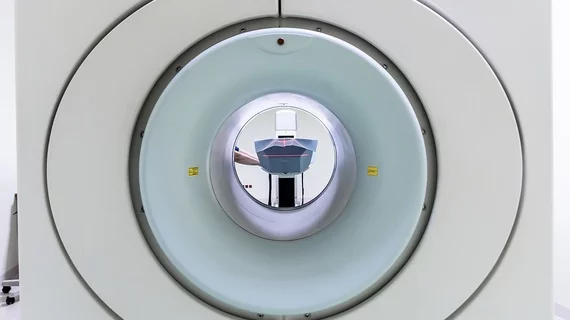Radiologists may turn to magnetic resonance imaging to better diagnose and treat patients with a rotator cuff tear, according to new research.
Two imaging findings—specifically, joint capsule swelling and thickness at the recess of the armpit—are useful to predict shoulder stiffness in patients with this particular injury. The findings, published Feb. 18 in the American Journal of Roentgenology, are brand-new and may help clinicians improve their treatment decision-making in this population.
“This study is important because it is the first to highlight joint capsule abnormality on MRI as a factor associated with stiff shoulder in patients with full-thickness rotator cuff tears,” Yoon Yi Kim, with Korea’s Veterans Health Service Medical Center, and colleagues wrote.
Stiffness in the shoulder joint, known as adhesive capsulitis or “frozen shoulder,” restricts a person’s range of motion and often causes pain. And in patients with rotator cuff injuries, this affliction is common, impacting an estimated 40% of individuals.
In an effort to better understand this little-researched topic, Kim et al. analyzed 106 patient with small to large (less than 5 centimeter) full-thickness rotator cuff tears. Two radiologists assessed a handful of injury-related features, including joint capsule edema and thickness in the axillary recess, and used MRI scans and reports to determine tear size and location.
The researchers concluded that joint capsule swelling and thickness in the recess of the armpit on MRI are good predictors of frozen shoulder. Additionally, tissue degeneration caused by fat deposits in the cells, known as fatty degeneration, is an independent predictor of limited range of motion on “internal rotation.”
“In conclusion, MRI findings—especially joint capsule edema and thickness at the axillary recess—can be useful in predicting stiff shoulder in patients with small to large full-thickness rotator cuff tears,” the researchers concluded.

